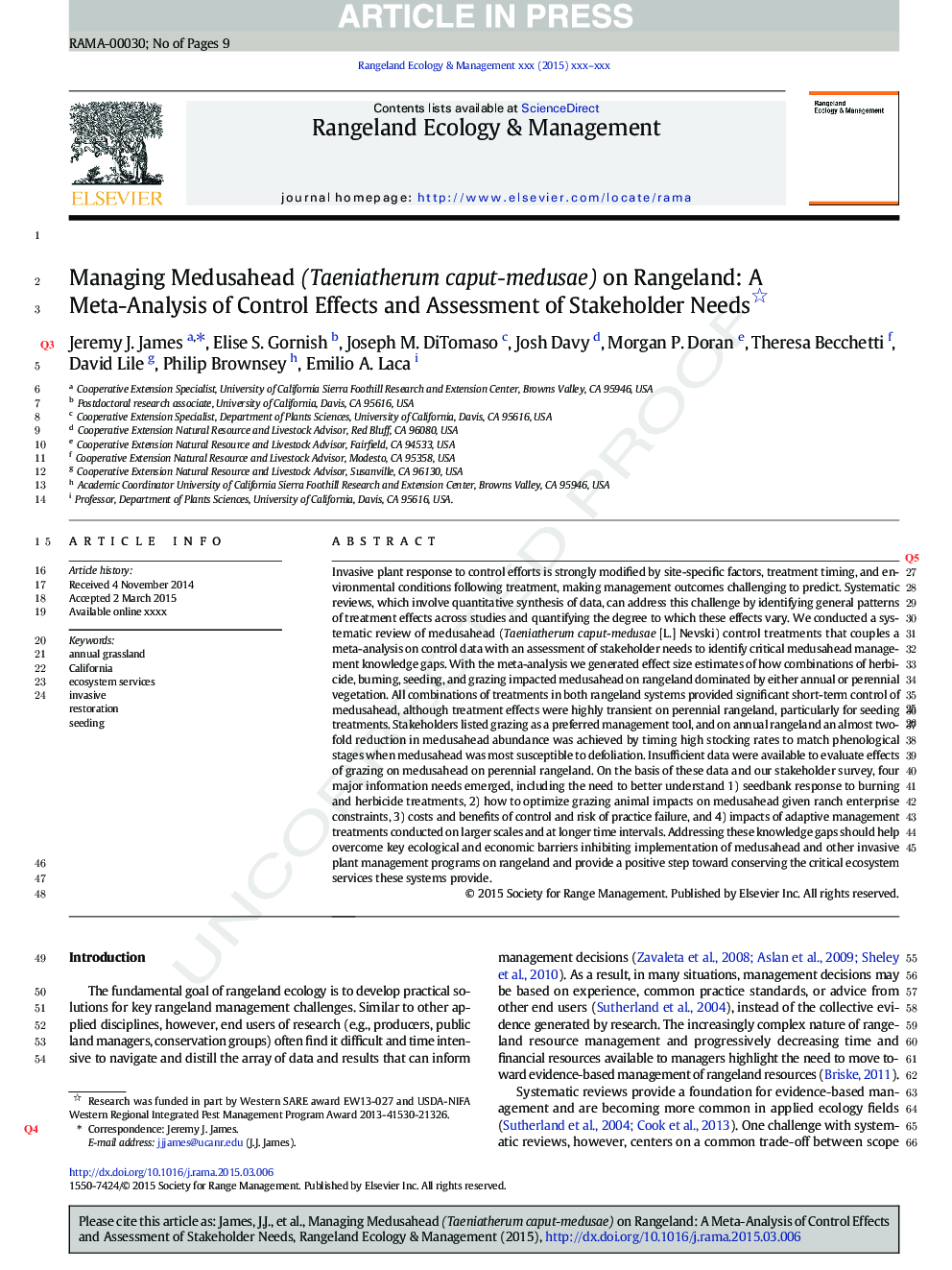| کد مقاله | کد نشریه | سال انتشار | مقاله انگلیسی | نسخه تمام متن |
|---|---|---|---|---|
| 4404279 | 1307152 | 2015 | 9 صفحه PDF | دانلود رایگان |
عنوان انگلیسی مقاله ISI
Managing Medusahead (Taeniatherum caput-medusae) on Rangeland: A Meta-Analysis of Control Effects and Assessment of Stakeholder Needs
دانلود مقاله + سفارش ترجمه
دانلود مقاله ISI انگلیسی
رایگان برای ایرانیان
کلمات کلیدی
موضوعات مرتبط
علوم زیستی و بیوفناوری
علوم کشاورزی و بیولوژیک
علوم کشاورزی و بیولوژیک (عمومی)
پیش نمایش صفحه اول مقاله

چکیده انگلیسی
Invasive plant response to control efforts is strongly modified by site-specific factors, treatment timing, and environmental conditions following treatment, making management outcomes challenging to predict. Systematic reviews, which involve quantitative synthesis of data, can address this challenge by identifying general patterns of treatment effects across studies and quantifying the degree to which these effects vary. We conducted a systematic review of medusahead (Taeniatherum caput-medusae [L.] Nevski) control treatments that couples a meta-analysis on control data with an assessment of stakeholder needs to identify critical medusahead management knowledge gaps. With the meta-analysis we generated effect size estimates of how combinations of herbicide, burning, seeding, and grazing impacted medusahead on rangeland dominated by either annual or perennial vegetation. All combinations of treatments in both rangeland systems provided significant short-term control of medusahead, although treatment effects were highly transient on perennial rangeland, particularly for seeding treatments. Stakeholders listed grazing as a preferred management tool, and on annual rangeland an almost twofold reduction in medusahead abundance was achieved by timing high stocking rates to match phenological stages when medusahead was most susceptible to defoliation. Insufficient data were available to evaluate effects of grazing on medusahead on perennial rangeland. On the basis of these data and our stakeholder survey, four major information needs emerged, including the need to better understand 1) seedbank response to burning and herbicide treatments, 2) how to optimize grazing animal impacts on medusahead given ranch enterprise constraints, 3) costs and benefits of control and risk of practice failure, and 4) impacts of adaptive management treatments conducted on larger scales and at longer time intervals. Addressing these knowledge gaps should help overcome key ecological and economic barriers inhibiting implementation of medusahead and other invasive plant management programs on rangeland and provide a positive step toward conserving the critical ecosystem services these systems provide.
ناشر
Database: Elsevier - ScienceDirect (ساینس دایرکت)
Journal: Rangeland Ecology & Management - Volume 68, Issue 3, May 2015, Pages 215-223
Journal: Rangeland Ecology & Management - Volume 68, Issue 3, May 2015, Pages 215-223
نویسندگان
Jeremy J. James, Elise S. Gornish, Joseph M. DiTomaso, Josh Davy, Morgan P. Doran, Theresa Becchetti, David Lile, Philip Brownsey, Emilio A. Laca,